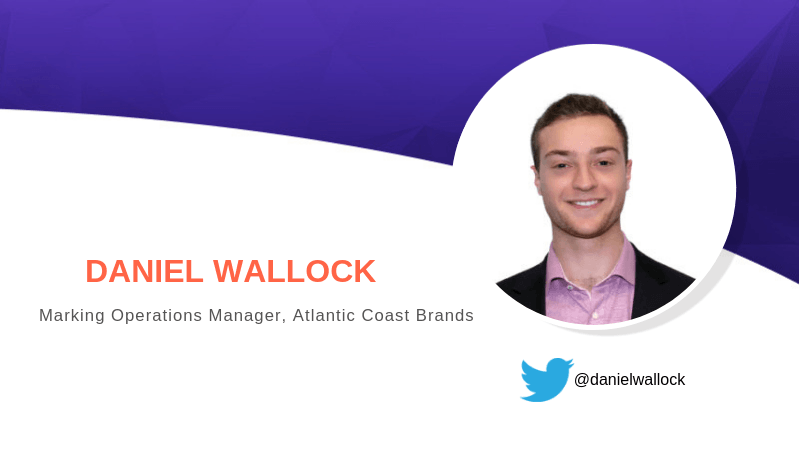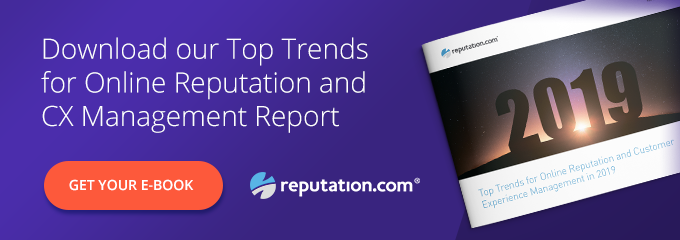Q&A with Daniel Wallock: Master of Cold Calling and Social Media Sage
Reputation Staff Writer


Daniel Wallock started his first marketing company while still in college. His success was confirmed when The Huffington Post, Forbes and others came knocking to pick his brain about marketing strategy and execution. Today, he’s the digital marketing manager at Avanan, a cloud security firm.
You built your business sending cold emails, a practice many dread. Is there a right way and a wrong way to send a cold email? Can you outline some do’s and don’ts for us?
Yes, I love cold emailing!
Good cold emails are typically short and targeted. You want to be specific and get right to the ways you can potentially help or benefit the person you’re emailing. Remember: the purpose of an initial cold email to someone should be to get them on the phone or to set up a meeting. Do not send them an email immediately pitching or trying to sell something.
The first email you send should be a few sentences showcasing how you’re a good fit for them and will add value to their business. You want to get them to want to schedule a meeting with you.
You tell people that they have to do their homework and put their time in to succeed as marketers. But not everyone becomes a successful marketer. How do you know when to keep trying and when to give up and move onto something else?
To be a marketer, you have to be OK with trying a lot of strategies and tactics that fail.
As a marketer, I try to question everything. I wonder who buys our product, why they buy the product, what pages on the site they spend the most time on, what questions we get from customers most and hundreds of other questions. Asking these questions helps me understand what’s going on and build effective campaigns based on what I learn.
Being an effective marketer comes down to being willing to question every aspect of why someone makes the choice to buy your product and how you can make your product more competitive in the marketplace.
Your specialty is social media. Businesspeople and marketers are constantly on social trying to get their name out there and get a bigger slice of the pie. How do you recommend they develop a strategy for getting noticed and breaking away from the pack?
A lot of people and brands do not have a cohesive social media strategy outlining the topics and values they want to represent in their content and the type of audience they want to attract.
It sounds simple, but the best way to develop a cohesive strategy is to actually sit down and start asking questions about what your company is about, who your customers are and how you can showcase whatever you’re selling in ways that will identify with your target audience.
In terms of getting noticed and breaking away from typical content, this requires some creativity.
Meet as a team and spend a few hours looking at examples of strong social media campaigns by competitors or even other brands. Ask yourself how your company can create content that goes the distance and is incredibly valuable for your audience.
That might look like creating a one-minute, short-form interview video series with a few executives at your company or other industry leaders. It might look like putting together a massive step-by-step guide on how to do a certain task that your business typically helps people with. Or it might just be content that is short-form and meme-y but relates to the products your company offers.
You live with a life-threatening heart condition. How does that change the way you view the world in regard to common business decisions such as taking risks, making connections, planning for the future, etc.? Can/should others apply some of these principles/attitudes?
I love my life and I am grateful to be alive.
I think that because my life was in jeopardy for so long, I do have a unique perspective on a lot of things, including running a business. I have never taken a business course, but when I realized I was interested in running a business, I set my mind to doing it. I went on to pitch over 1,300 potential deals or clients from my college dorm room.
Of course, most of the time, the answer is no. But if you can find a way to add value to other people’s lives, it makes it easier for them to say yes and want to work with you. That will increase your chances of getting what you’re after.
I think it’s important to remember that there is no reason not to go after what you want. Life is short.
Outside of asking customers for positive reviews, what do you recommend startups — or even seasoned businesspeople — do to improve their online reputations? How much time should they put into this aspect of their business; that is, how important is it?
Having a strong reputation is incredibly important.
Something I’ve tried to do is align myself with organizations I believe in. I have done a lot of volunteer work and consulting with companies I truly believe in, such as The American Heart Association and Girls Inc.
While it’s great to ask your customers or peers for positive reviews and testimonials, it’s also good to ensure that your company is aligning with other organizations and projects you can support.
Part of reputation comes down to who you work with and who you know, and by aligning with powerful organizations you believe in, you can build brand equity for yourself while helping a great cause.


